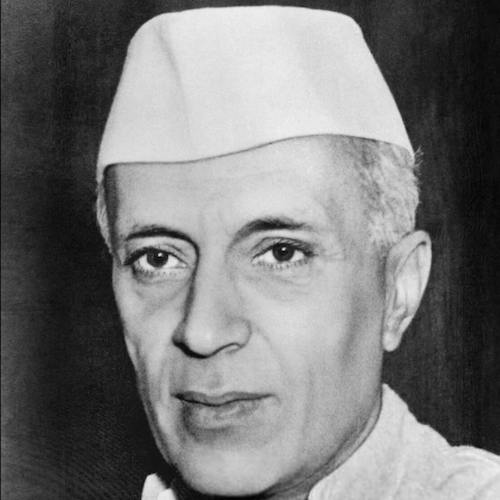Early Life
Jawaharlal Nehru was born on 14 November 1889 in Allahabad to a Kashmiri Pandit family. His father, Motilal Nehru, was a wealthy barrister a prominent figure in the Indian national movement. Nehru was educated at a number of elite institutions including the Harrow School and Trinity College, Cambridge. He trained in law at Inner Temple, London where he encountered Fabian Society scholars. Later, Nehru would be known for his advocacy of fabian socialism. After his return from London in 1912, Nehru enrolled himself as an advocate of the Allahabad High Court.
Role in India’s Independence Movement
Nehru began working for the Indian National Congress after returning from London and soon moved up the party ranks. He led the Non-Cooperation Movement and the Kisan Movement in the United Provinces in 1920, participated in the protest against the Simon Commission in 1928, moved the Purna Swaraj Declaration in 1930, led the Civil Disobedience Movement in the United Provinces in 1930 and participated in the Quit India Movement in 1942. He was arrested and imprisoned by the British multiple times and cumulatively spent close to 9 years in prison.
He held the post of the President of the Indian National Congress many times and was the Prime Minister of the interim Indian Government between 1946 and 1950.
Contribution to Constitution Making
Nehru was elected to the Constituent Assembly from the United Provinces on a Congress Party ticket and held important positions on various committees. He actively participated in the Assembly debates on several key issues, including his landmark speech on the Objectives Resolution.
Later Contributions
Nehru served as India’s first Prime Minister for 17 years, from 1947 to 1962. As Prime Minister, he played a critical role in the Indian economy: he was instrumental in the adoption of import substitution and the development of the heavy industries sector. He established many academic institutions including the All India Institute of Medical Sciences, the Indian Institutes of Technology, the Indian Institutes of Management and the National Institutes of Technology.
Many attribute the survival of India’s constitutional democracy to this first 15 years of leadership that was marked by his adherence to constitutional norms in politics and governance.
Nehru played a key role in India adopting an independent foreign policy through its support and membership of the Non-Alignment Movement. However, his handling of the India-China relationship during the late 1950s and early 1960s was considered a failure.
As a tribute to Nehru, his birthday is celebrated as Children’s Day across India. He advocated for children’s rights and considered children as the real strength of a nation and the foundation of society.
He died on 27 May 1967 in New Delhi due to coronary thrombosis.
Key writings
Nehru’s notable works include Towards freedom; the Autobiography of Jawaharlal Nehru (1936); The Discovery of India (1946); and Glimpses of World History (1934).
- On 13 December 1946, four days after Assembly’s first session, he moved the ‘Objectives Resolution’ that would inform the constitution-making process.
- In response to the Hindi enthusiasts, Nehru argued for resolving the national language issue through democratic principles rather than an authoritarian approach.
- Defending India’s decision to join the Commonwealth of Nations, he put forward both pragmatic and idealistic reasons for the same.
- On the eve of Independence Day, he addressed the Assembly and the nation with his famous ‘Tryst with destiny’ speech.
- Jawaharlal Nehru: Rebel and Statesman, by BR Nanda (Oxford India, 1998)
- Nehru, by Benjamin Zachariah (Routledge Historical Biographoes, 2004)
- The Nehrus, by BR Nanda (Oxford India, 2007)

